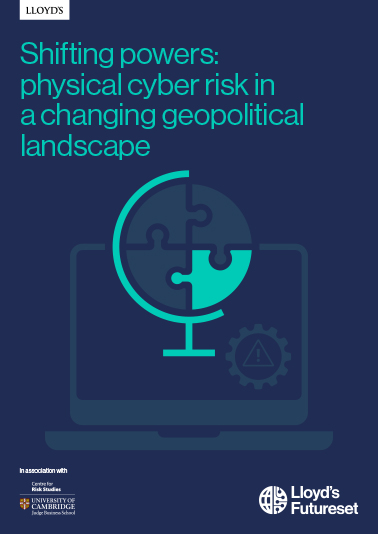In recent years, malware and ransomware attacks have been causing severe disruption for global businesses and their supply chains. In addition to the rise in malware and ransomware attacks, the threat of state-sponsored cyber-attacks has become a significant focus for businesses and governments.
Whilst most cyber-attacks are digital, some result in tangible disruption or damage to the physical environment - these types of attacks are becoming increasingly common place. This is, in large part due to the increasingly interconnected nature of systems and services which expose businesses to perils from physical cyber-attacks such as fires, explosions, flooding or bodily injury.
At Lloyd’s we understand the complex and potentially systemic risks in the cyber class and are committed to supporting a resilient cyber market. Cyber physical represents a key opportunity for insurers to develop a sustainable cyber offering that can help protect customers from a risk that has reached the highest level of priority in boardrooms around the world.
